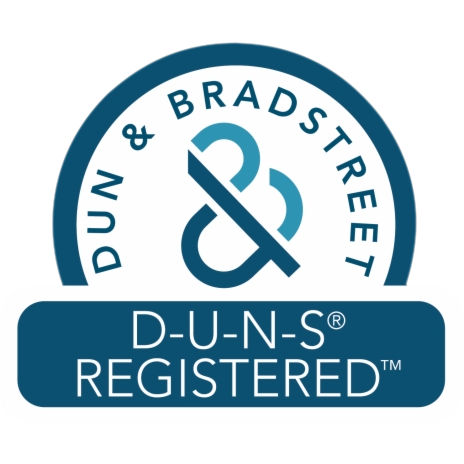DB6 vs high carbon steels
now browsing by category
DB6 vs High Carbon Steels
When it comes to choosing steel for industrial, tooling, or manufacturing purposes, the choice often boils down to the material’s performance, strength, and durability. DB6 steel and high carbon steels are two prominent contenders in various industries. Each has its unique properties, uses, and advantages.
In this article, we’ll break down the differences between DB6 and high carbon steels to help you make the right decision based on your specific needs.

What is DB6 Steel?
Definition and Composition of DB6 Steel
DB6 is a premium-grade, hot-work tool steel that is specifically designed for die and tooling applications. It belongs to the H-series of tool steels and typically contains chromium, molybdenum, and vanadium as its core alloying elements.
Key Properties of DB6 Steel
- Toughness: DB6 exhibits excellent toughness, which helps it resist cracking under high stress.
- Heat Resistance: It maintains its strength at elevated temperatures.
- Wear Resistance: Due to its alloying elements, DB6 resists wear, making it perfect for heavy-use industrial tools.
- Hardness: It strikes a balance between hardness and machinability.
Common Applications of DB6 Steel
- Die Casting Dies: DB6 is frequently used in aluminum and zinc die-casting dies.
- Extrusion Tools: It excels in hot extrusion applications where heat resistance is critical.
- Plastic Molding: DB6 is utilized for injection molding applications due to its durability.
What are High Carbon Steels?
Definition and Composition of High Carbon Steels
High carbon steels are steels with a carbon content between 0.6% and 1.0%, which gives them enhanced hardness and strength compared to low and medium carbon steels.
Key Properties of High Carbon Steels
- Hardness: High carbon steels achieve high hardness levels when properly heat-treated.
- Strength: Their higher carbon content contributes to excellent tensile strength.
- Wear Resistance: High carbon steels resist abrasion effectively in moderate conditions.
- Machinability: They are harder to machine compared to low carbon steels but can be shaped under specific conditions.
Common Applications of High Carbon Steels
- Cutting Tools: Knives, blades, and cutting tools often rely on high carbon steels.
- Springs: Due to their elasticity and strength, high carbon steels are widely used for springs.
- Wires and Cables: Strong wires are frequently made using high carbon steels.
DB6 vs. High Carbon Steels: A Comparative Analysis
Composition Comparison
- DB6 Steel: Contains alloying elements like chromium, molybdenum, and vanadium, which enhance its toughness and resistance to heat and wear.
- High Carbon Steels: Primarily rely on carbon content for their hardness and strength without significant alloying additions.
Hardness and Toughness
- DB6 Steel: While DB6 may not be as hard as high carbon steels, it offers excellent toughness, making it ideal for high-stress industrial uses.
- High Carbon Steels: These steels are extremely hard but less tough, which makes them prone to cracking under extreme conditions.
Wear Resistance
- DB6’s alloyed structure offers superior wear resistance in high-temperature environments.
- High carbon steels provide moderate wear resistance but may degrade under high heat.
Machinability and Workability
- DB6 Steel: Offers good machinability and can be worked into complex shapes.
- High Carbon Steels: More challenging to machine due to their hardness.
Strength and Durability: DB6 vs. High Carbon Steels
DB6 Steel Strength Under Stress:
DB6’s robust toughness makes it ideal for repeated use in high-impact, high-heat scenarios, such as die-casting or extrusion.
High Carbon Steel Performance in High-Stress Environments:
While high carbon steels excel in strength, they are less durable in prolonged high-temperature environments, making them unsuitable for hot work applications.
Heat Treatment: DB6 vs. High Carbon Steels
Heat Treatment Process of DB6 Steel
DB6 is subjected to quenching and tempering processes, which give it optimal toughness and hardness for die applications.
Heat Treatment Process of High Carbon Steels
High carbon steels undergo annealing, hardening, and tempering to achieve high hardness levels.
Differences in Heat Treatment Outcomes
- DB6 retains toughness even after heat treatment.
- High carbon steels become extremely hard but lose some toughness in the process.
Corrosion Resistance
DB6 Steel’s Resistance to Corrosion:
DB6 has better corrosion resistance compared to high carbon steels due to its alloying elements like chromium.
High Carbon Steel’s Corrosion Limitations:
High carbon steels are more prone to rusting and corrosion when exposed to moisture or corrosive environments.
Conclusion
Choosing between DB6 steel and high carbon steels depends entirely on your application. If you need a material with excellent toughness, heat resistance, and wear performance, DB6 steel is your best bet. On the other hand, if cost and hardness are primary considerations, high carbon steels might meet your requirements.
FAQs
1. What is the biggest difference between DB6 and high carbon steels?
The biggest difference lies in their composition. DB6 is an alloyed tool steel, while high carbon steels rely on carbon for their properties.
2. Which steel is better for die and tooling?
DB6 is superior for die and tooling due to its heat resistance and toughness.
3. How do DB6 and high carbon steels respond to heat treatment?
DB6 retains toughness after heat treatment, whereas high carbon steels become extremely hard but lose toughness.
4. Is DB6 steel more expensive than high carbon steel?
Yes, DB6 steel is typically more expensive due to its alloying elements and superior properties.
5. Can high carbon steel replace DB6 in industrial applications?
High carbon steel can be used for specific low-temperature applications, but it cannot match DB6’s performance in hot work environments.
Discover the quality of Die Steel with VIRAT SPECIAL STEELS PVT. LIMITED. Get in touch with us today to place your requirement! Contact us today to buy the best quality DB6 / DIN 2714 steel for your tooling needs! https://www.viratsteels.com/din-2714.html
Any further queries feel free to contact us :
🌐https://www.viratsteels.com 📩info@viratsteels.com 📲+91-98140-21775






